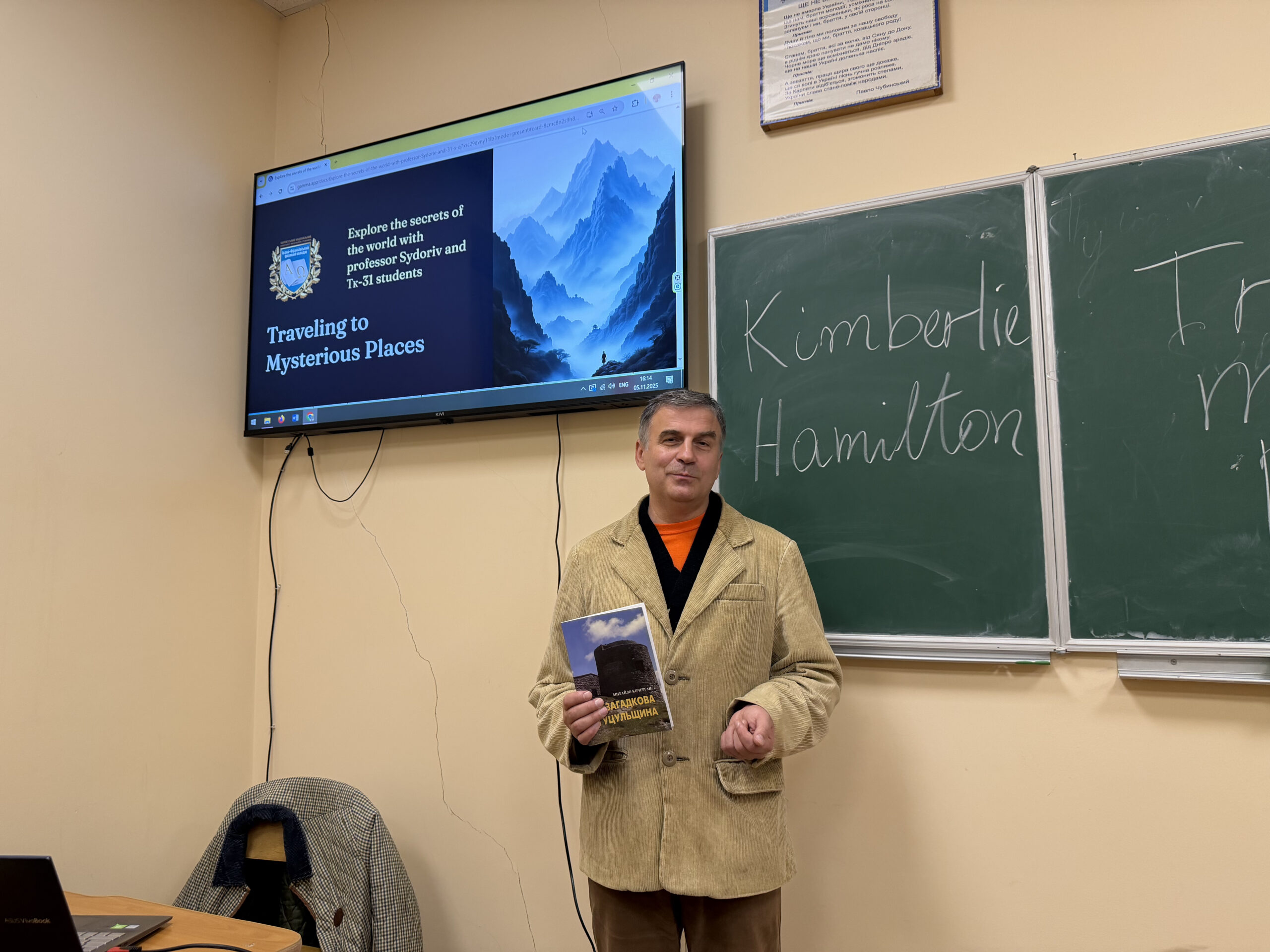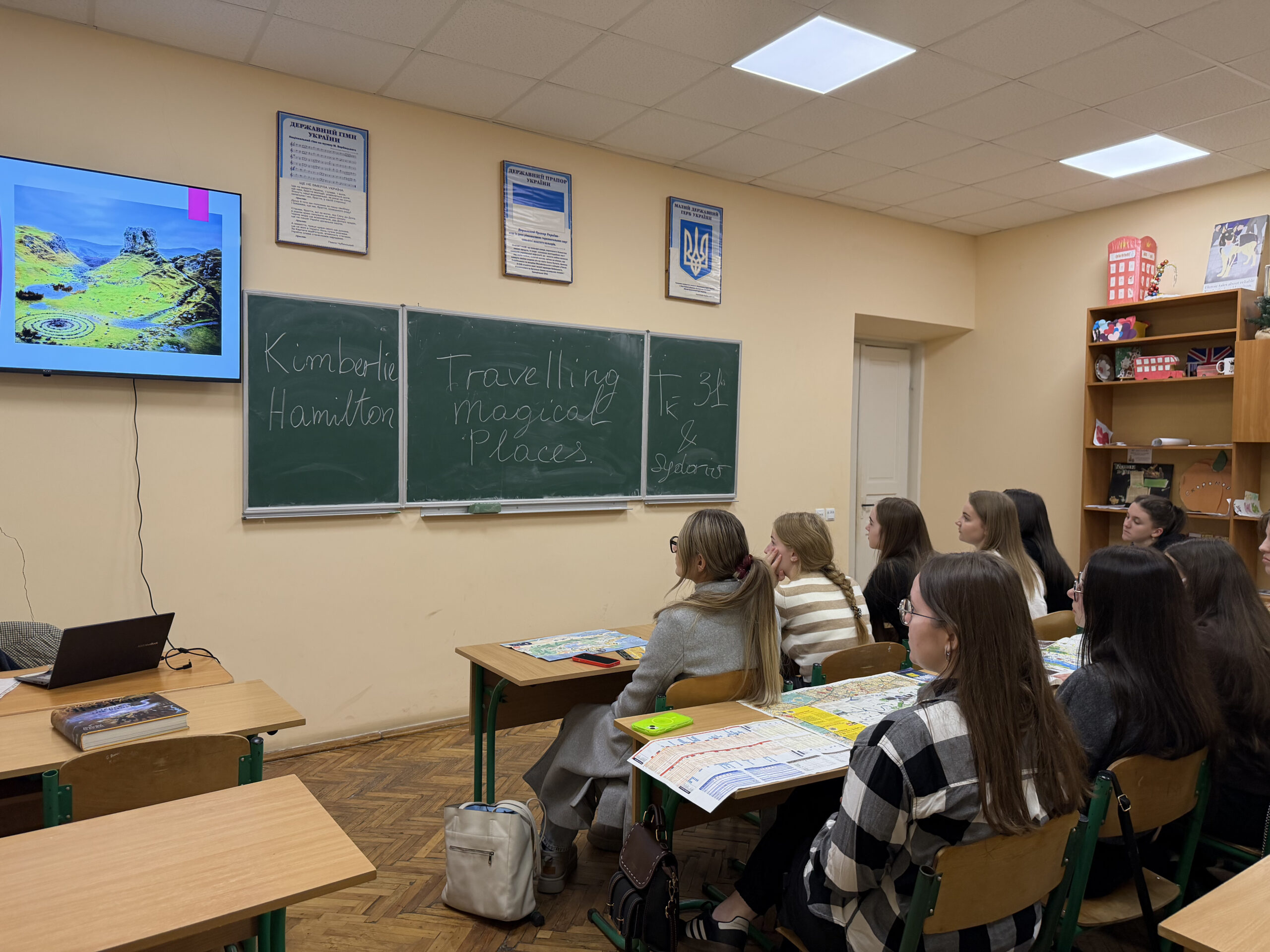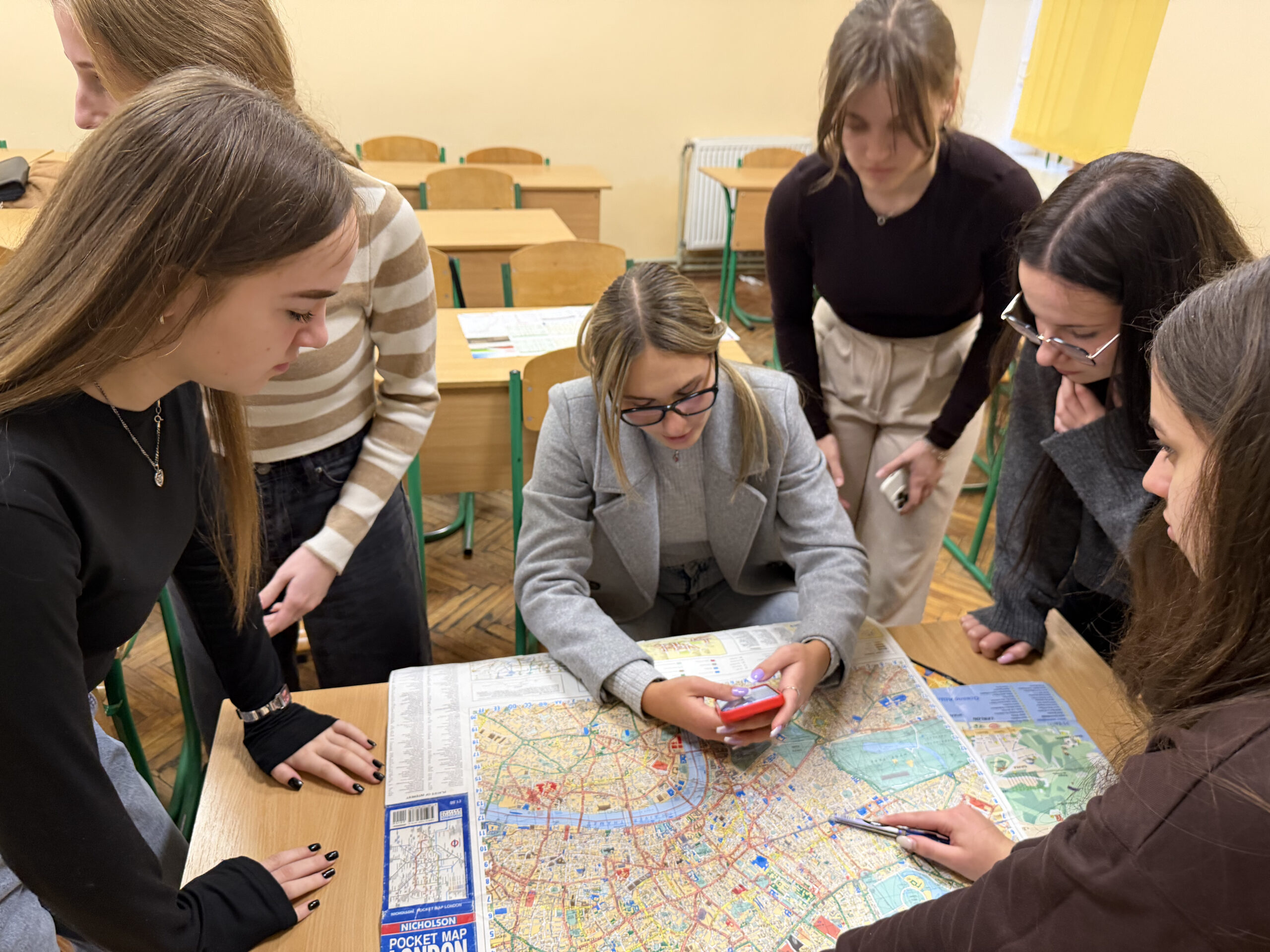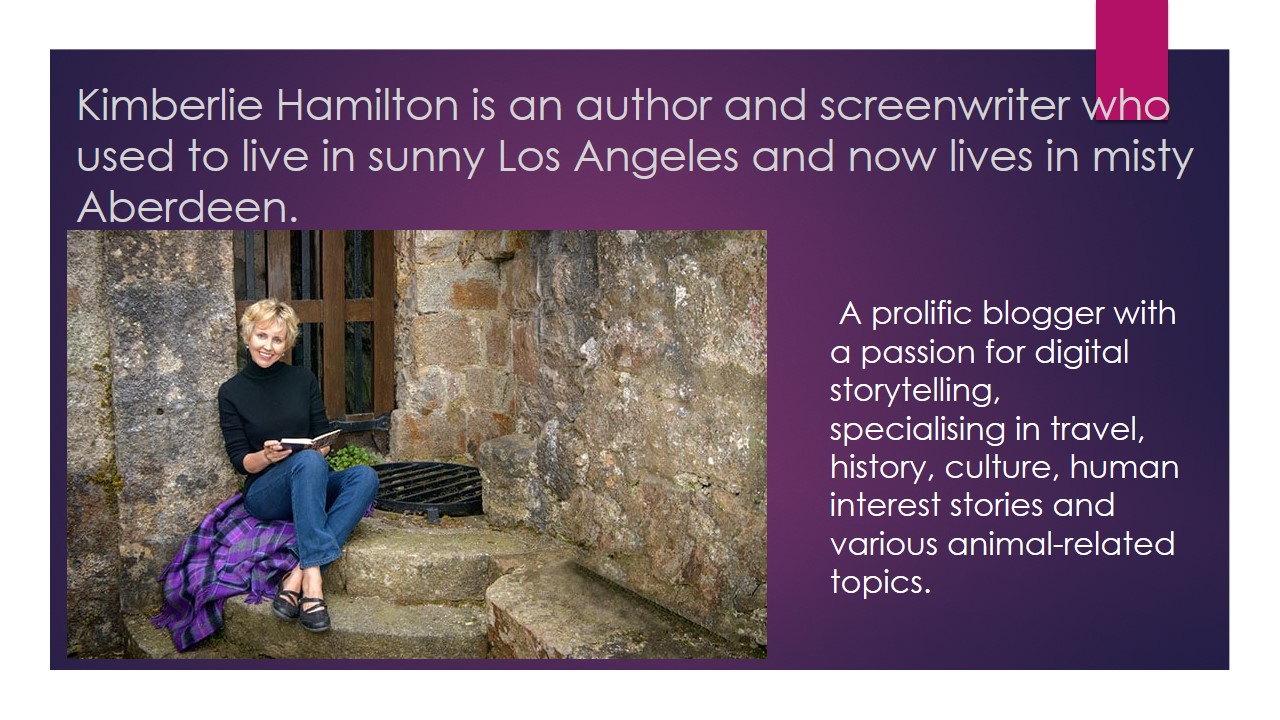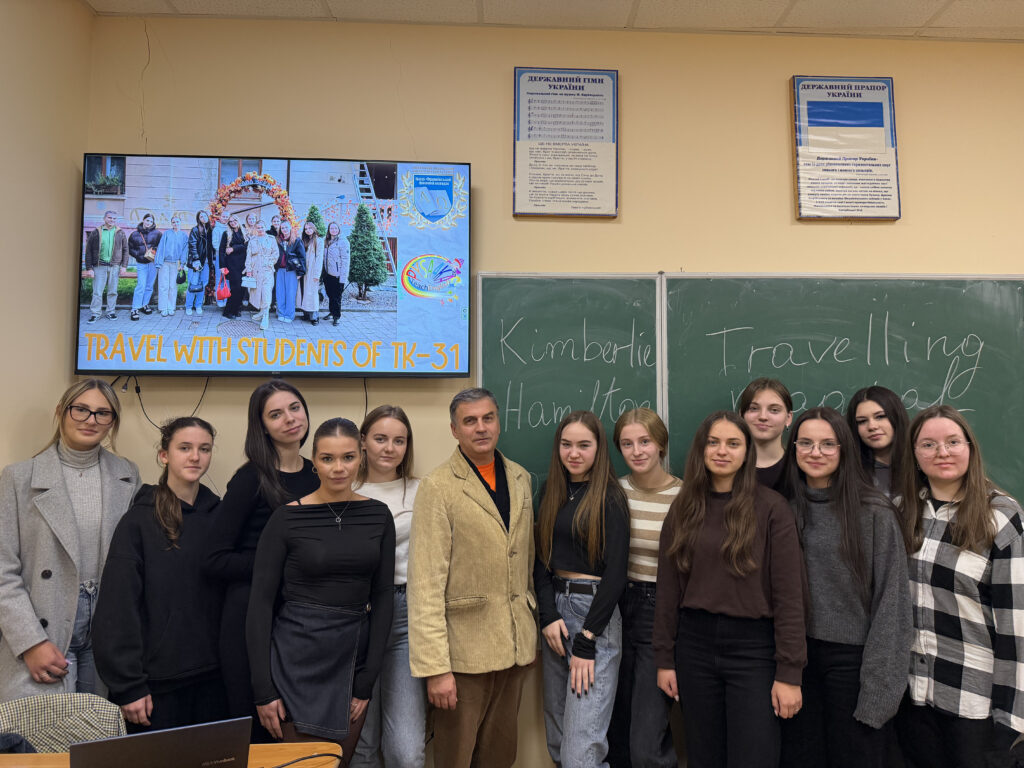Third-year students majoring in Tourism and Recreation are mastering English through the active use of innovative teaching technologies. The aim of these classes is to develop the communicative and professional competences of future tourism specialists, foster intercultural communication skills, and ensure confident command of modern English in real-world professional contexts.
Here are some innovative learning projects and activities that we held:
Native Speakers in the Classroom. Students established online communication with the contemporary author Kimberlie Hamilton, whose motivational stories inspire learners to combine language study with authentic international interaction and cultural exchange. During a lesson devoted to magical places around the world, our students had the opportunity to take a virtual trip to Scotland, exploring its castles, lakes, and historical artefacts presented by our international friend and enthusiastic lecturer, Kimberlie Hamilton.
Virtual Tour Project. Students explore and then create video tours in English, presenting Ukrainian tourist routes with Canva, Google Earth, and AI tools. They also use regional literature, printed brochures, maps, and authentic souvenirs, deepening both language and cultural awareness.
Role-Play Simulation. Through professional simulations, students practice real-life tourism situations: phone and email communication, booking, client service, travel organization, and conflict resolution.
Phonetic Workshop: “Harry Potter and the Order of the Phoenix”. To enhance pronunciation and intonation, students read excerpts from the original illustrated edition—sent by the teacher’s daughter from the USA—and perform dramatized scenes, analyzing the emotional rhythm and melody of authentic English speech.
Developing Business Communication Skills. Students practiced writing formal emails to J.K. Rowling’s literary agents after reading a chapter of her book on video. This practical activity taught business correspondence structure and professional etiquette in English.
English through Case Studies. Analyzing and presenting real cases from the tourism industry helps students develop critical thinking, problem-solving, and argumentation skills.
Online studying and collaborating. Students collaborate in Breakout Rooms, completing group tasks and later presenting results to the whole class – an approach that promotes teamwork, creativity, and public speaking confidence in times of war. Various online platforms and tools (Padlet, Quizlet, Mentimeter, etc) are used for brainstorming, vocabulary consolidation, formative assessment, and reflection after lessons. Interactive competitions on LearningApps, Quizizz, and Wordwall motivate students to review vocabulary, work in teams, and engage in a spirit of friendly competition. Students use artificial intelligence tools to practice dialogues, improve pronunciation, and develop spontaneous speech. They also create multimedia materials and visualizations of travel routes, combining linguistic and digital literacy.
All these methods are implemented using authentic English-language textbooks and the teacher’s original materials, ensuring the practical orientation and relevance of the learning process.
